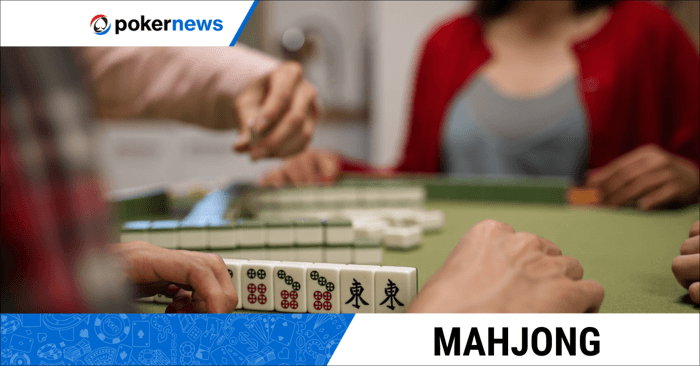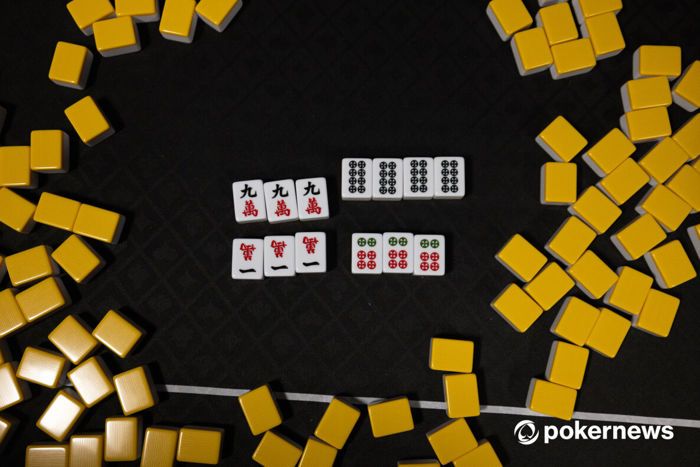Mahjong Tournaments - A Competitive Journey into Tile-Based Mastery

Get ready for the thrilling journey of competition with Mahjong Tournaments, where strategic mastery meets the excitement of facing skilled opponents. In this article, explore the dynamics, rules, and strategies that define Mahjong Tournaments, offering players a platform to showcase their tile-based skills on a competitive stage.
The Structure of Mahjong Tournaments
Mahjong tournaments are organized and structured events that bring together players to compete in the strategic and thrilling game of Mahjong. The structure of Mahjong tournaments encompasses various key elements, starting with the format of play. Tournaments often adopt a round-robin or elimination format, where players compete against each other in predefined rounds. The progression through these rounds is crucial, as successful players advance to subsequent stages, ultimately leading to the determination of a tournament champion.
The rules governing Mahjong tournaments vary, but they typically adhere to the fundamental principles of the game with specific modifications to suit the competitive setting. Tournament organizers may implement time constraints, influencing the pace of play and adding an element of urgency to decision-making. Scoring systems are also adapted to ensure fairness and efficiency in determining winners. Additionally, Mahjong tournaments may feature specific guidelines regarding player conduct, ensuring a respectful and competitive environment.
The structure of Mahjong tournaments not only reflects the competitive nature of the game but also contributes to the overall camaraderie and shared enthusiasm among participants. Whether played in a local community or on a grander scale, the structure of Mahjong tournaments adds an extra layer of excitement to the traditional gameplay, creating an engaging and dynamic platform for Mahjong enthusiasts to showcase their skills and compete for coveted titles.
CHECK OUT OUR OTHER MAHJONG GUIDES
How to Participate in Mahjong Tournaments
Participating in Mahjong tournaments is an exciting venture for players eager to showcase their skills in a competitive setting. The first step is to identify and select a Mahjong tournament that aligns with your preferences and skill level. Many tournaments are organized locally or online, providing diverse options for players to choose from. Once a suitable tournament is identified, the registration process follows.
Tournament registration typically involves providing essential information, such as your name, contact details, and sometimes your Mahjong skill level or ranking. Some tournaments may have entry fees, while others might be free to join. Ensure that you carefully review the entry requirements and any associated costs before completing the registration process.
Understanding the tournament rules is crucial for prospective participants. Familiarize yourself with the specific format of play, scoring systems, and any unique regulations set by the organizers. Some tournaments may have qualification rounds or specific criteria for advancement, so being well-versed in the rules ensures a smooth and informed participation experience.

For online Mahjong tournaments, players may need to create accounts on dedicated platforms, where they can find information about upcoming events, register, and connect with fellow participants. It's essential to stay updated on communication channels provided by the tournament organizers for announcements, schedules, and any last-minute changes.
By following these steps, players can seamlessly join Mahjong tournaments, immerse themselves in the competitive atmosphere, and enjoy the thrill of showcasing their Mahjong skills on a broader stage.
Strategies for Success in Mahjong Tournaments
Success in Mahjong tournaments hinges on a combination of skill, adaptability, and strategic thinking. One key strategy is the ability to adapt to diverse playing styles. In a tournament setting, you'll encounter opponents with varying approaches to the game, and the capacity to read and respond to different styles becomes paramount. Be observant and flexible, adjusting your strategy based on the unique characteristics of each opponent.
Effective time management is another critical strategy. Tournaments often impose time constraints on each move or round, requiring players to make decisions promptly. Develop a balance between playing strategically and managing the clock efficiently. Prioritize critical decisions and avoid spending excessive time on less impactful moves, ensuring that you use your allotted time wisely throughout the tournament.
Strategic positioning in terms of scoring is also key. While aiming for high-scoring hands is essential, understanding the tournament format and your current standing is equally important. Sometimes, conservative play to secure a favorable position for advancement can be strategic, especially in multi-round tournaments with cumulative scoring.
Communication and adaptability within your own playing team, if applicable, are crucial in team-based Mahjong tournaments. Team members must coordinate effectively, share information about opponents' discards, and collectively strategize for success.
Ultimately, success in Mahjong tournaments goes beyond individual skill; it involves a holistic approach that combines adaptability, strategic decision-making, and effective communication. By embracing these strategies, players can enhance their competitive edge and increase their chances of achieving success in the dynamic and challenging environment of Mahjong tournaments.
MAHJONG NOT FOR YOU? CHECK OUT RUMMY INSTEAD
The Significance of Scoring in Mahjong Tournaments
The scoring system in Mahjong tournaments is a fundamental aspect that plays a crucial role in determining success and ranking among participants. Points are calculated based on the specific rules established by the tournament organizers. The significance of achieving high scores lies in the competitive advantage it provides. In many tournaments, players accumulate points throughout the competition, and those with the highest overall scores advance to subsequent rounds or claim top positions.
Understanding the intricacies of scoring is essential for strategic gameplay in Mahjong tournaments. Different combinations and winning hands yield varying point values, incentivizing players to pursue high-scoring patterns. However, the scoring system also introduces an element of risk and reward, as certain strategies may prioritize more conservative play to secure consistent, albeit lower, scores over riskier approaches that could lead to higher points.

High scores not only contribute to individual success but can also influence team standings in team-based Mahjong tournaments. Teams often strategize collectively to maximize their combined scores, emphasizing both individual achievement and collaborative efforts.
The significance of scoring extends beyond personal achievements; it serves as a metric for gauging overall performance and advancement in the tournament. Successful navigation of the scoring system requires a balance between risk-taking and strategic play, as players aim not only to achieve victory in individual rounds but also to secure a strong position in the cumulative scoring, ultimately determining their success in the competitive realm of Mahjong tournaments.
The Thrill of Mahjong Tournament Finals
Mahjong Tournament finals mark the pinnacle of excitement in competitive play, featuring high-stakes matches that showcase the pinnacle of strategic prowess. As top players vie for victory, the intensity of these finals is palpable. Each move becomes a critical decision, and the atmosphere is charged with the thrill of determining the ultimate champion. The finals often attract a heightened level of attention, not only from participants but also from enthusiasts and spectators eager to witness the culmination of skill and strategy on the grand tournament stage.
In Mahjong Tournament finals, top players employ advanced strategies, drawing from their experience and adaptability to navigate the unique challenges presented by their opponents. The competition reaches its zenith as participants strive to outmaneuver their counterparts, making bold moves while carefully calculating the risks. The thrill lies not only in the pursuit of victory but also in the unfolding drama as players respond to the dynamic nature of the game and each other's strategies.
The finals serve as a testament to the dedication and skill of the participants, showcasing their ability to excel under pressure. Whether in local community tournaments or larger-scale events, the Mahjong Tournament finals captivate audiences with the electrifying atmosphere, creating memorable moments that highlight the competitive spirit and strategic brilliance inherent in the world of Mahjong tournaments.
The Global Appeal of Mahjong Tournaments
Mahjong Tournaments have achieved remarkable global appeal, transcending cultural boundaries to unite players from diverse backgrounds in a shared passion for the game. International competitions showcase the widespread love for Mahjong, drawing participants from various corners of the world to compete on a global stage. This global reach contributes to the rich tapestry of Mahjong Tournaments, creating a melting pot of styles, strategies, and cultural influences.
One of the captivating aspects of Mahjong Tournaments is the diverse player backgrounds that converge in these events. Participants hail from different countries, bringing with them unique playing styles, regional variations, and cultural nuances that enrich the competitive landscape. The global appeal fosters a sense of community and camaraderie among players, transcending linguistic and cultural barriers as they share their love for Mahjong.
International Mahjong Tournaments not only showcase the competitive spirit but also serve as platforms for cultural exchange. Players have the opportunity to interact with counterparts from different parts of the world, exchanging insights, strategies, and forging lasting connections. This cultural exchange adds an extra layer of depth to Mahjong Tournaments, making them not just competitions but also celebrations of diversity and mutual respect.
The global appeal of Mahjong Tournaments reflects the universal allure of this ancient game and its ability to bring people together in the spirit of friendly competition. Whether on a local level or in grand international events, Mahjong Tournaments embody the shared joy and enthusiasm that players worldwide find in the intricate strategies and thrilling dynamics of competitive Mahjong play.
FAQs - Mahjong Tournaments
How are players seeded in Mahjong Tournaments, and is it based on skill level?
Player seeding in Mahjong Tournaments can vary. Some tournaments use a skill-based seeding system, considering players' past performance, while others may employ random or alternative methods.
What types of Mahjong variations are typically played in tournaments, and do the rules vary?
Tournaments often feature popular variations like Riichi or MCR Mahjong. Rules can vary, and organizers specify the particular variation and ruleset for each tournament.
Are there age restrictions for participating in Mahjong Tournaments?
Age restrictions can vary by tournament. While many tournaments are open to all ages, some may have specific age requirements or categories.
How are tiebreakers determined in Mahjong Tournaments?
Tiebreakers are determined by specific tournament rules, which may include factors like highest individual round score or head-to-head performance.
What are some tips for players participating in their first Mahjong Tournament?
Tips for first-time participants include familiarizing themselves with tournament rules, practicing efficient time management, and maintaining a positive and adaptable mindset throughout the competition.
